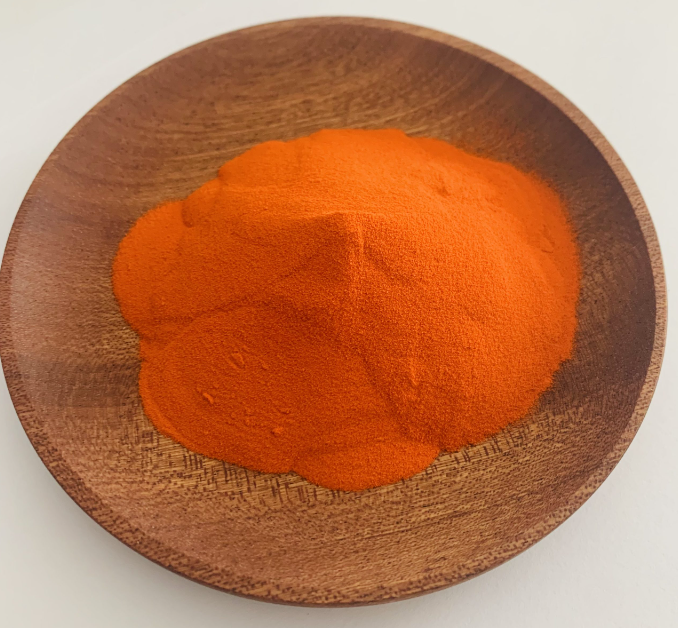
●What’s The Lutein ?
Lutein is a carotenoid naturally present in many fruits and vegetables, with multiple biological activities. Recent studies have shown that fisetin plays an important role in promoting eye health. This article will review the structural characteristics, biosynthetic pathway, protective effects on the retina, and application in the treatment of ophthalmic diseases of fisetin.
Lutein is a yellow, fat-soluble pigment with a molecular structure that is a derivative of β-carotene. Its molecule contains a long-chain polyunsaturated fatty acid and a cyclic tetralone structure. The molecular structure of fisetin gives it good antioxidant properties, which can effectively scavenge free radicals and protect cells from oxidative damage.
●Biosynthetic Pathway Of Lutein
Lutein is mainly synthesized by photosynthesis in plants. During photosynthesis, plants absorb sunlight and convert it into chemical energy, while producing a large amount of oxygen. In this process, plants need to consume a large amount of carotenoids, such as β-carotene and α-carotene. These carotenoids undergo a series of enzyme-catalyzed reactions to eventually produce fisetin. Therefore, the biosynthesis of fisetin is closely related to plant photosynthesis.

●Benefits Of Lutein On The Retina
1.Antioxidant Effect
Lutein has strong antioxidant properties and can effectively scavenge free radicals and protect retinal cells from oxidative damage. Studies have shown that lutein can reduce the level of oxidative stress-related proteins in retinal cells, thereby reducing the damage of oxidative stress to retinal cells.
2.Anti-Inflammatory Effect
Lutein has anti-inflammatory effects, which can inhibit the production of inflammatory factors and reduce retinal inflammatory responses. Studies have found that lutein can reduce the level of inflammatory factors in retinal cells, thereby reducing retinal inflammatory responses.
3.Anti-Apoptotic Effect
Lutein has anti-apoptotic effects and can inhibit the apoptosis of retinal cells. Studies have shown that lutein can reduce the level of apoptosis-related proteins in retinal cells, thereby inhibiting the apoptosis of retinal cells.
4.Promote Visual Function
Lutein can promote visual function and improve vision. Studies have found that lutein can improve visual signal transmission and enhance the function of the optic nerve. In addition, lutein can also reduce the risk of age-related macular degeneration and prevent the occurrence of eye diseases such as cataracts.

●Application Of Lutein In The Treatment Of Ophthalmic Diseases
1.Age-Related Macular Degeneration
Age-related macular degeneration is a common eye disease, mainly manifested by decreased central vision. Studies have found that lutein can reduce the risk of age-related macular degeneration and improve patients' vision.
2.Cataract
Cataract is a common eye disease, mainly manifested by lens opacity. Studies have found that lutein can reduce the risk of cataracts and delay the development of cataracts.
3.Glaucoma
Glaucoma is a common eye disease, mainly manifested by increased intraocular pressure. Studies have found that lutein can reduce intraocular pressure and improve the vision of glaucoma patients.
4.Diabetic Retinopathy
Diabetic retinopathy is one of the common complications of diabetic patients, mainly manifested by retinal hemorrhage and exudation. Studies have found that lutein can reduce the risk of diabetic retinopathy and improve patients' vision.
In short, lutein has multiple biological activities and plays an important role in promoting eye health. By supplementing with lutein-rich foods or using lutein supplements, people can improve their vision and prevent and treat eye diseases.
●NEWGREEN Supply Lutein Powder/Capsules/Gummies


Post time: Jan-06-2025





